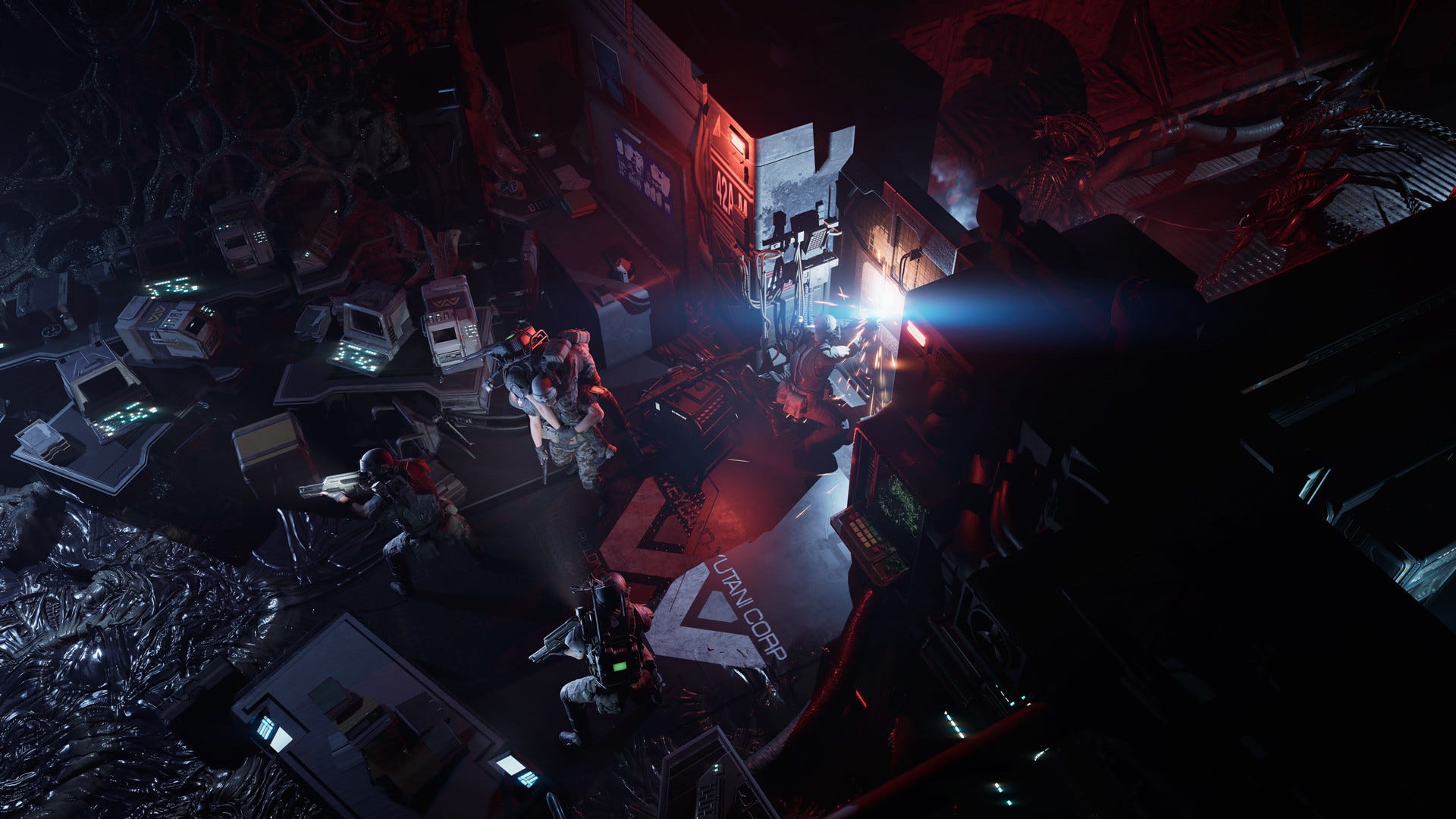
Here’s a question for all you armchair General Pattons and Joan of Arcs: has a tactics or strategy game ever made you jump? I’ve been thinking about this a lot while playing Tindalos Interactive’s promising movie adaptation Aliens: Dark Descent, out next week on console and PC, in which you guide a quartet of gung-ho yet fragile troopers around xeno-infested bases, tracking down survivors and trying not to wake the full wrath of the Hive.
The problem with Aliens adaptations at large is that most horror fans know the 1986 film back-to-front, and are therefore immune to its scares, however creatively reimagined. You certainly wouldn’t expect a top-down squad management sim to rekindle the frenzy and claustrophobia of that first-act battle beneath the atmosphere processing station – what Lieutenant Gorman would have given for a top-down view, to say nothing of a slow-mo command interface! But I’ve felt genuine fear at times while playing Aliens: Dark Descent, thanks to rather than in spite of its elevated perspective. On the basis of an hour’s playtime, at least, it’s a solid test-case for the idea that strategy games can make for gripping horror experiences, precisely because the two genres seem to have nothing in common.
“Strategy and tactics” covers a massive range, of course – real-time, turn-based, combat-focussed, economy-focussed, historical, sci-fi, Wholesome, grimdark, etc – but the throughline, perhaps, is that all these games hinge on a fantasy of control by means of distance, of having a world laid at your feet, so that you can safely and securely pop down pieces, pluck up resources, slice and redraw boundaries. Most horror games are the opposite: they trade in the feeling that the world is invading you, that you can’t wield control over it because you can’t separate yourself from it. A horror strategy game is therefore tantamount to a submarine on wheels. But that very incompatibility is a great setup for a scare.




